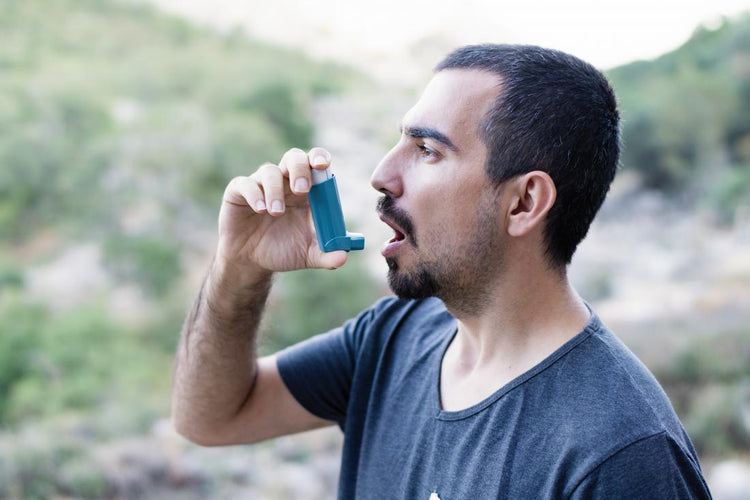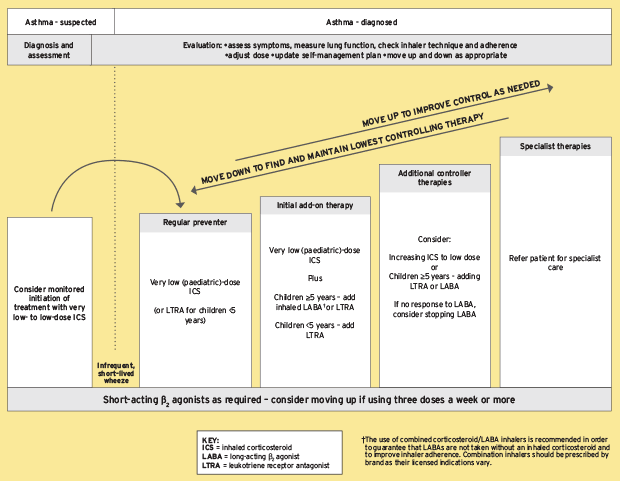Can I Claim Personal Independence Payment (PIP) for Asthma and COPD?


Related products
Can I Claim PIP for Asthma and COPD?
Can I Claim Personal Independence Payment (PIP) for Asthma and COPD?
Personal Independence Payment (PIP) is a UK-based financial benefit designed to help individuals with long-term health conditions or disabilities manage the extra costs associated with their condition. PIP is available to adults with a long term physical or mental health condition, including both physical and mental health conditions, who find everyday tasks or mobility activities difficult. In Scotland, the equivalent benefit for adults is called Adult Disability Payment (ADP). This article, written for the Welzo Health Library, aims to provide an in-depth understanding of PIP eligibility for individuals with asthma and chronic obstructive pulmonary disease (COPD). According to Dr. Samantha Walker, Deputy Chief Executive of Asthma UK, and Dr. Nick Hopkinson, Medical Director of the British Lung Foundation, both asthma and COPD can significantly impact daily living and mobility, making it essential to consider the possibility of PIP support for affected individuals. PIP is designed to help with extra living costs that arise from disability difficulty and challenges in performing certain everyday tasks. Eligibility for PIP is based on the difficulty a person has with daily living and mobility, and the amount awarded depends on whether the claimant qualifies for one or both parts of the benefit. PIP works by assessing your ability to carry out daily living activities and mobility tasks, and is made up of two parts: the daily living component and the mobility component. The amount you receive depends on how your condition influences you and whether you qualify for one or both parts. PIP has replaced Disability Living Allowance (DLA) for most adults, but DLA is still available for children under 16. Adults can claim PIP regardless of most other benefits they may already be receiving. You will continue to receive PIP unless your circumstances change. For information on Asthma as a whole, read our definitive guide on: Asthma: Definition, Causes, Signs and Symptoms, Diagnosis, and Treatments.
Eligibility for Personal Independence Payment (PIP)
A. General PIP eligibility criteria
General PIP eligibility criteria require applicants to be aged between 16 and 64, have a long-term health condition or disability, and demonstrate difficulty with daily living and mobility activities. Individuals making a new claim for PIP must meet the eligibility criteria and may be assessed for one or both parts of the benefit. The assessment process for PIP involves evaluating an individual’s abilities in various daily living and mobility activities, awarding points based on the level of assistance needed. The assessment specifically looks at the claimant's ability to perform specific mobility tasks as well as daily living activities.
B. How PIP is determined based on daily living and mobility activities
PIP is divided into a daily living part and a mobility part, each assessing different sets of tasks. PIP is awarded based on the individual’s abilities in ten daily living activities and two mobility activities. Each activity is assigned a point value, and the total points accumulated determine the level of PIP awarded. Daily living activities include tasks such as preparing food, washing and bathing, dressing and undressing, and managing medications. Mobility activities assess the individual’s ability to move around and plan and follow journeys. The mobility part provides assistance for individuals who have difficulty getting around due to physical, cognitive, or mental health conditions, and eligibility for the mobility part can impact other benefits or allowances.
Information to Support Your Claim
When applying for Personal Independence Payment (PIP) for asthma or COPD, it's essential to provide detailed information on how your condition impacts your daily life. The more specific you are about your symptoms and limitations, the stronger your claim is likely to be.
Start by describing your asthma symptoms or COPD symptoms in detail. This might include difficulty breathing, chest tightness, persistent coughing, or experiencing severe asthma attacks. Be sure to mention how often you have asthma attacks or flare-ups of COPD, and how these episodes impact your ability to carry out certain everyday tasks. If you experience breathing problems during activities like walking, climbing stairs, or even at rest, explain how this limits your mobility and independence.
It’s also important to highlight any triggers that make your condition worse. Common asthma triggers and COPD triggers include air pollution, cold air, hay fever, and exposure to tobacco smoke. If you find that cigarette smoke or long term exposure to air pollution makes your symptoms worse, include this information in your claim. If you have a history of smoking or have been exposed to secondhand smoke, mention this as it can increase your risk of developing COPD or make your asthma symptoms more severe.
Detail the treatments and medicines you use to manage your condition, such as inhalers, nebulisers, or oxygen therapy. Explain how often you need to use these treatments and whether you require help from family members or a healthcare professional to manage your medicines or monitor your symptoms. If you have an asthma action plan or use a peak flow meter to track your lung function, include this as evidence of how your condition is managed day-to-day.
If you have a mental health condition or physical disability in addition to your lung disease, describe how this combination influences your daily living and mobility tasks. For example, anxiety about having a life threatening asthma attack or depression related to chronic illness can make it even harder to manage daily life.
Be sure to include any relevant medical history, such as a diagnosis of asthma, chronic bronchitis, or COPD, and provide details about when you were diagnosed and how your condition has progressed. If you have experienced worsening symptoms or your condition affects your ability to work, study, or participate in social activities, make this clear in your application.
Lifestyle factors are also important. If you smoke or have smoked in the past, or if you are exposed to tobacco smoke at home or work, mention this as it can contribute to developing COPD or make existing lung issues worse. If you were born with a low birth weight or have a family history of lung disease, this information can also be relevant.
To strengthen your claim, keep a diary of your symptoms, asthma attacks, and any difficulties you face with mobility or daily living. Collect supporting evidence from your healthcare professional, such as medical reports, letters, or test results. Organisations like Lung UK can offer guidance and support throughout the claims process.
If you are currently receiving Disability Living Allowance (DLA), you may be invited to apply for PIP as part of the transition for adults. If you have questions about your eligibility or need help with your application, contact the Department for Work and Pensions (DWP) or seek advice from a disability support organisation.
By providing thorough, honest, and detailed information about how your lung condition affects your daily life, you can help ensure your PIP claim is assessed fairly and that you receive the support you need to manage your condition and maintain your independence.
PIP Claims Process: Step-by-Step Guide
Navigating the Personal Independence Payment (PIP) claims process can be challenging, especially if you have a long-term lung condition such as asthma or (COPD). This clear, step-by-step guide is designed to support individuals with obstructive pulmonary disease and asthma throughout each stage of their PIP claim.

COPD and PIP
A. The impact of COPD on daily living and mobility activities
COPD, similar to asthma, can greatly affect daily living and mobility. Those with COPD often face breathing difficulties, fatigue, and reduced mobility. Symptoms may be triggered by allergens, smoke, or physical activity, causing sudden breathing challenges.
B. Factors considered when assessing PIP eligibility for individuals with COPD
-
Severity and progression of the disease: The stage and progression of COPD can affect an individual’s ability to carry out daily tasks and move around.
-
Medication and treatment: The effectiveness of medications and other treatments can impact the extent to which an individual’s COPD is managed and their ability to function in daily life. Inhalers deliver medicine directly to the lungs, and correct use is essential for the medicine to work effectively. Some medicines, such as beta blockers, can potentially trigger asthma or COPD symptoms, so it is important to consult your healthcare professional before starting any new medications. Additionally, other conditions may influence your symptoms or treatment, so always discuss any comorbidities with your healthcare provider.
-
Impact on daily activities and social functioning: COPD symptoms and treatments may limit an
-
individual’s ability to participate in social activities, work, or education.
C. Examples of successful PIP claims for COPD
Examples of successful PIP claims for COPD often involve individuals with advanced disease stages, requiring oxygen therapy, and experiencing significant limitations in daily life.
D. Tips for applying for PIP with COPD
When applying for PIP with COPD, it is important to detail the severity of your condition, your treatment plan, and the ways in which your daily life is affected. Gather medical documentation, such as letters from healthcare providers and test results, to support your claim. Make sure to include documentation from a health professional or healthcare professional that clearly describes your medical condition and how it affects your daily activities.
How to Apply for PIP with Asthma and/or COPD
A. Preparing for the application process
Gather Medical Documentation: Collect detailed medical records from your healthcare providers, including diagnosis, treatment plans, and test results. Documenting when and how your condition was diagnosed helps show its history and progression.
Understand PIP Assessment Criteria: Familiarise yourself with the PIP assessment guidelines and how they relate to your situation. This knowledge will help you clearly explain how your condition influences your daily living and mobility.
B. Filling out the PIP application form
Tips for Describing the Impact of Asthma and COPD: Clearly detail your symptoms, treatments, and how your condition affects daily living and mobility. Support your description with medical reports or letters from healthcare professionals outlining the severity and impact on your everyday activities.
Providing Supporting Evidence: Submit relevant medical records and healthcare professional letters to strengthen your PIP claim.
C. The PIP assessment process
What to Expect During the PIP Assessment: You may need to attend a face-to-face consultation with a healthcare professional who will assess your condition in detail. Be ready to discuss your symptoms, treatments, and how your condition influences daily life.
Tips for a Successful Assessment: Offer honest and accurate information about your abilities and limitations. Keeping a symptom diary beforehand can help you provide clear examples during the assessment.
Appealing a PIP Decision
A. Reasons for appealing a PIP decision
If you disagree with your PIP outcome, you have the right to appeal. Common reasons include incorrect assessment of your abilities, lack of proper consideration of your evidence, or procedural mistakes during the process.
B. The appeal process and timeline
Familiarise yourself with the appeal steps and deadlines. Start by requesting a mandatory reconsideration within one month of receiving your decision. If still dissatisfied, you can escalate the case to a formal tribunal appeal.
C. Tips for a successful appeal
Strengthen your appeal by collecting updated medical records, healthcare provider letters, and personal accounts of daily challenges. Clearly explain why you believe the original decision was incorrect and how your condition meets PIP criteria.
Conclusion
Asthma and COPD can greatly affect daily living and mobility, making Personal Independence Payment (PIP) support essential for many. Eligibility depends on the condition’s severity and its impact on everyday tasks. Providing detailed information about your symptoms and daily challenges improves your chances of a successful PIP claim.
References
-
Dr. Samantha Walker, Deputy Chief Executive of Asthma UK. Asthma UK. Retrieved from https://www.asthma.org.uk/about-us/who-we-are/our-people/
-
Dr. Nick Hopkinson, Medical Director of the British Lung Foundation. British Lung Foundation. Retrieved from https://www.blf.org.uk/about-us/our-team/dr-nick-hopkinson
-
Personal Independence Payment (PIP). Gov.uk. Retrieved from https://www.gov.uk/pip
-
Asthma. National Health Service (NHS). Retrieved from https://www.nhs.uk/conditions/asthma/
-
Chronic Obstructive Pulmonary Disease (COPD). National Health Service (NHS). Retrieved from https://www.nhs.uk/conditions/chronic-obstructive-pulmonary-disease-copd/
-
Citizens Advice. Personal Independence Payment (PIP) appeals. Retrieved from https://www.citizensadvice.org.uk/benefits/sick-or-disabled-people-and-carers/pip/appeals/apply-to-tribunal/
Please note that these references were used to provide background information and context for the article. It is essential to verify the accuracy and relevance of the information provided, as the sources and guidelines may change over time.



















 Rated Excellent by 26,523+ Reviews
Rated Excellent by 26,523+ Reviews